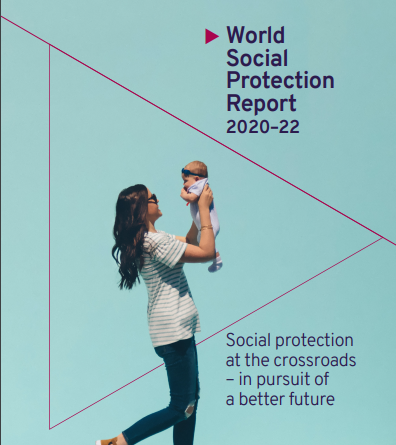World Social Protection Report 2020–22
By ILO
Despite progress in recent years in extending social protection in many parts of the world, when the coronavirus disease (COVID-19) pandemic hit many countries were still facing significant challenges in making the human right to social security a reality for all. This report provides a global overview of progress made around the world over the past decade in extending social protection and building rights-based social protection systems, including floors, and covers the impact of the COVID-19 pandemic. In doing so, it provides an essential contribution to the monitoring framework of the 2030 Agenda for Sustainable Development.
Five messages emerge from the report:
The pandemic has exposed deep-seated inequalities and significant gaps in social protection coverage, comprehensiveness and adequacy across all countries. Pervasive challenges such as high levels of economic insecurity, persistent poverty, rising inequality, extensive informality and a fragile social contract have been exacerbated by COVID-19. The crisis also exposed the vulnerability of billions of people who seemed to be getting by relatively well but were not adequately protected from the socio-economic shock waves it has emitted. The pandemic’s socio-economic impacts have made it difficult for policymakers to ignore a number of population groups – including children, older persons, unpaid carers, and women and men working in diverse forms of employment and in the informal economy – who were covered either inadequately or not at all by existing social protection measures. In revealing these gaps, this report shows that the pandemic has propelled countries into unprecedented policy action, with social protection at the forefront.
Get the book here
512 views










